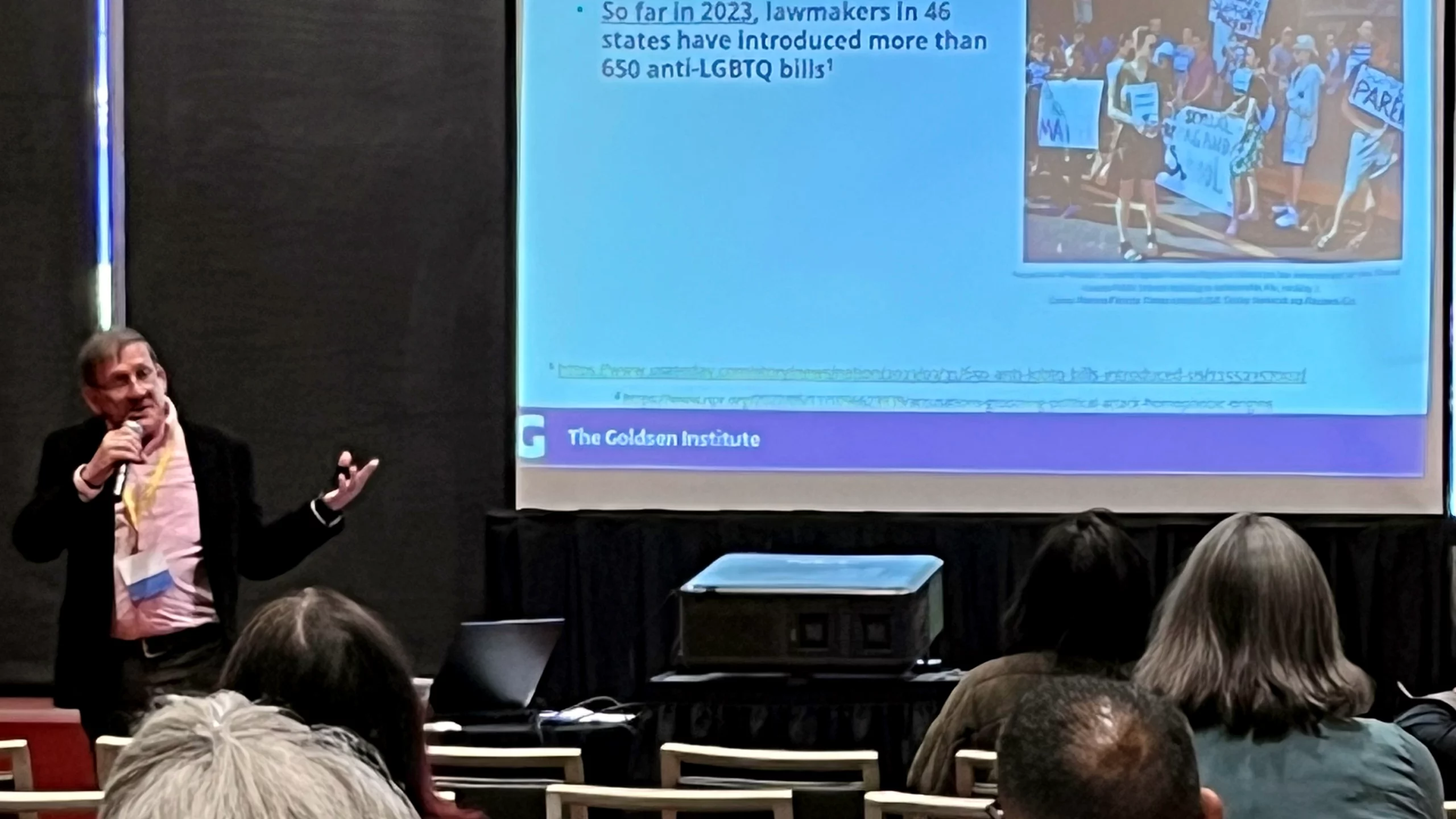Case managers, nurses, and other social services and health care providers are crucial to disrupting a pervasive cycle of oppression at the intersection of heterosexism and ageism. To do so requires that health and social services providers have the knowledge and tools to provide culturally competent, non-judgmental services for today’s – and tomorrow’s – LGBTQ+ older adults. This is the essence of Safe Home, an evidence-based, culturally responsive training program designed for health and social service providers to better serve our older LGBTQ+ community members. On May 22, 2023 Charlie Hoy-Ellis brought this message to the Say It Out Loud (SIOL) conference in Spokane, Washington.
Charlie opened his session with the actual words of a 66-year-old lesbian who participated in the basic research that we conduct within the Goldsen Institute, the ongoing, longitudinal Aging with Pride: National Health, Aging, and Sexuality/Gender Study (NHAS). This first of its kind federally-funded (NIH/NIA) study follows 2,450 LGBTQ+ adults aged 50 and older across the country to better understand their health and well-being. This participant’s powerful words highlight the critical need for Safe Home:
“Isolation, finding friend support, caregiving and health care the biggest issues older gay persons face. Who will be there for us, who will help care for us without judgment?”
To understand why she and increasing millions of other LGBTQ+ older adults feel this way, it is critical to understand historical and current sociocultural contexts that shape their fears – and hopes regarding community long-term support services.
Research indicates that LGBTQ+ populations experiences significant health disparities (e.g., mood/anxiety & substance use disorders, suicidality, CVD, hypertension, social isolation) as a result of lifelong social exclusion and marginalization consequent to structural, institutional, interpersonal, and internalized heterosexism.
Research also indicates that to avoid more of the same, LGBTQ+ older adults will avoid seeking LTSS, fearing isolation, harassment, and discrimination. Alternately, those who do seek such services often hide their sexual/gender identities, which research also suggests places them at increased risk for depression and multiple chronic health conditions.
Informed by more than two decades of cutting edge research from the Goldsen Institute, Charlie shared some of the ways that providers can make their programs and agencies welcoming Safe Homes that support the full participation in the life of the community for LGBTQ+ and other vulnerable older adults in Washington State.
About Charlie Hoy-Ellis
Charlie Hoy-Ellis, PhD, MSW, LICSW, joins our team as the new Safe Home Training Coordinator with a wealth of expertise in the field of LGBTQ+ health and well-being, particularly for midlife and older adults. With a strong background in psychology, clinical social work, and social welfare, Dr. Hoy-Ellis has over 20 years of experience providing clinical services to the LGBTQ+ community. His research has focused on addressing the health disparities faced by LGBTQ+ individuals, families, and communities due to heterosexism. As a former research assistant for the Caring and Aging with Pride Project (CAP), he contributed to a nationally funded study examining the well-being of LGBTQ+ adults aged 50 and older, which evolved into the Aging with Pride: National Health, Aging, and Sexuality/Gender Study (NHAS). Returning to the Goldsen Institute at the University of Washington, School of Social Work, Dr. Hoy-Ellis now serves as a research scientist and the Director of Interventions for Underserved Communities and training coordinator with AgePRIDE.


